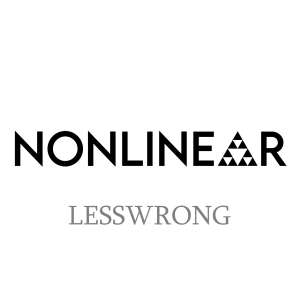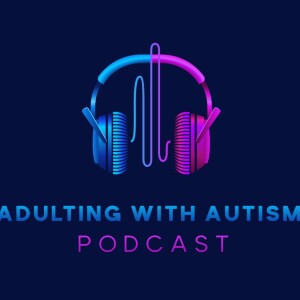

Link to original articleWelcome to The Nonlinear Library, where we use Text-to-Speech software to convert the best writing from the Rationalist and EA communities into audio. This is: Pseudonymity and Accusations, published by jefftk on December 22, 2023 on LessWrong.
Here's a category of situations I'm not sure how to think about: Avery, writing under a pseudonym ('Alex'), accuses Pat of something, let's say abuse. A major motivation of Avery's is for people to know to consider this...
Link to original article
Welcome to The Nonlinear Library, where we use Text-to-Speech software to convert the best writing from the Rationalist and EA communities into audio. This is: Pseudonymity and Accusations, published by jefftk on December 22, 2023 on LessWrong.
Here's a category of situations I'm not sure how to think about: Avery, writing under a pseudonym ('Alex'), accuses Pat of something, let's say abuse. A major motivation of Avery's is for people to know to consider this information before in their interactions with Pat. Pat claims that actually it was 'Alex' who was abusive, and gives their side of the story. While it's all pretty hard for outsiders to judge, a bunch of people end up thinking that they would like to take some precautions in how they interact with 'Alex'.
Revealing who is behind a pseudonym is usually considered a kind of doxing, and in the communities I'm part of this is usually considered unacceptable. For example, the EA Forum prohibits it:
We also do not allow doxing - or revealing someone's real name if they prefer anonymity - on the Forum.
We (the LW moderation team) have given [commenter] a one-week site ban and an indefinite post/topic ban for attempted doxing. We have deleted all comments that revealed real names, and ask that everyone respect the privacy of the people involved.
In general I'm in favor of people being able to participate online under a pseudonym. I think there are better and worse ways to do it, but there are lots of valid reasons why you might need to keep your real life identity separate from some or all of your writing. Doxing breaks this (though in some cases it's already very fragile) and so there should be a pretty strong presumption against it.
On the other hand, there's no guarantee that the person who speaks up first about an issue is in the right. What if Pat is correct that it really was entirely Avery being abusive, and publicly accusing Pat of abuse is yet another form of this mistreatment? If we say that linking 'Alex' back to Avery isn't ok, then the social effects on Avery of posting first are very large. And if we settle on community norms that put a lot of weight on being the first one to go public then we'll see more people using this as an intentional tactic.
Public accusations of mistreatment can be really valuable in protecting others, and telling your story publicly is often heroic. Sometimes people are only willing to do this anonymously, which retains much of the value: I don't think I know anyone who thinks the 2018 accusations against Brent, which led to him being kicked out of the in-person Bay area rationality community, were negative. Even when many people in the community know who the accusers are, if accusers know their real names will be shared publicly instead of quickly scrubbed I suspect they're less likely to come forward and share their stories.
But it seems like it would normally be fine for Pat to post publicly saying "Avery has been talking to my friends making false accusations about me, here's why you shouldn't trust them..." or a third party to post "Avery has been saying false things about Pat, I think it's really unfair, and here's why...". In which case I really don't see how Avery going a step further and pseudonymously making those accusations in writing should restrain Pat or other people.
I think the reason these feel like they're in tension is that my underlying feeling is that real victims should be able to make public accusations that name the offender, and offenders shouldn't be able to retaliate by naming victims. But of course we often don't know whether someone is a real victim, so this isn't something community norms or moderation polices can really use as an input.
There's a bunch of nuanced discussion about a specific recent variant of this on the EA Forum and LessWrong. I don't know what the answer is, and I suspect whichever way you go has significant downsides. But I think maybe the best we can do is something like, a trusted com...
View more
Welcome to The Nonlinear Library, where we use Text-to-Speech software to convert the best writing from the Rationalist and EA communities into audio. This is: Pseudonymity and Accusations, published by jefftk on December 22, 2023 on LessWrong.
Here's a category of situations I'm not sure how to think about: Avery, writing under a pseudonym ('Alex'), accuses Pat of something, let's say abuse. A major motivation of Avery's is for people to know to consider this information before in their interactions with Pat. Pat claims that actually it was 'Alex' who was abusive, and gives their side of the story. While it's all pretty hard for outsiders to judge, a bunch of people end up thinking that they would like to take some precautions in how they interact with 'Alex'.
Revealing who is behind a pseudonym is usually considered a kind of doxing, and in the communities I'm part of this is usually considered unacceptable. For example, the EA Forum prohibits it:
We also do not allow doxing - or revealing someone's real name if they prefer anonymity - on the Forum.
We (the LW moderation team) have given [commenter] a one-week site ban and an indefinite post/topic ban for attempted doxing. We have deleted all comments that revealed real names, and ask that everyone respect the privacy of the people involved.
In general I'm in favor of people being able to participate online under a pseudonym. I think there are better and worse ways to do it, but there are lots of valid reasons why you might need to keep your real life identity separate from some or all of your writing. Doxing breaks this (though in some cases it's already very fragile) and so there should be a pretty strong presumption against it.
On the other hand, there's no guarantee that the person who speaks up first about an issue is in the right. What if Pat is correct that it really was entirely Avery being abusive, and publicly accusing Pat of abuse is yet another form of this mistreatment? If we say that linking 'Alex' back to Avery isn't ok, then the social effects on Avery of posting first are very large. And if we settle on community norms that put a lot of weight on being the first one to go public then we'll see more people using this as an intentional tactic.
Public accusations of mistreatment can be really valuable in protecting others, and telling your story publicly is often heroic. Sometimes people are only willing to do this anonymously, which retains much of the value: I don't think I know anyone who thinks the 2018 accusations against Brent, which led to him being kicked out of the in-person Bay area rationality community, were negative. Even when many people in the community know who the accusers are, if accusers know their real names will be shared publicly instead of quickly scrubbed I suspect they're less likely to come forward and share their stories.
But it seems like it would normally be fine for Pat to post publicly saying "Avery has been talking to my friends making false accusations about me, here's why you shouldn't trust them..." or a third party to post "Avery has been saying false things about Pat, I think it's really unfair, and here's why...". In which case I really don't see how Avery going a step further and pseudonymously making those accusations in writing should restrain Pat or other people.
I think the reason these feel like they're in tension is that my underlying feeling is that real victims should be able to make public accusations that name the offender, and offenders shouldn't be able to retaliate by naming victims. But of course we often don't know whether someone is a real victim, so this isn't something community norms or moderation polices can really use as an input.
There's a bunch of nuanced discussion about a specific recent variant of this on the EA Forum and LessWrong. I don't know what the answer is, and I suspect whichever way you go has significant downsides. But I think maybe the best we can do is something like, a trusted com...
Comments (3)
More Episodes
All Episodes>>You may also like
Creat Yourt Podcast In Minutes
- Full-featured podcast site
- Unlimited storage and bandwidth
- Comprehensive podcast stats
- Distribute to Apple Podcasts, Spotify, and more
- Make money with your podcast
It is Free












